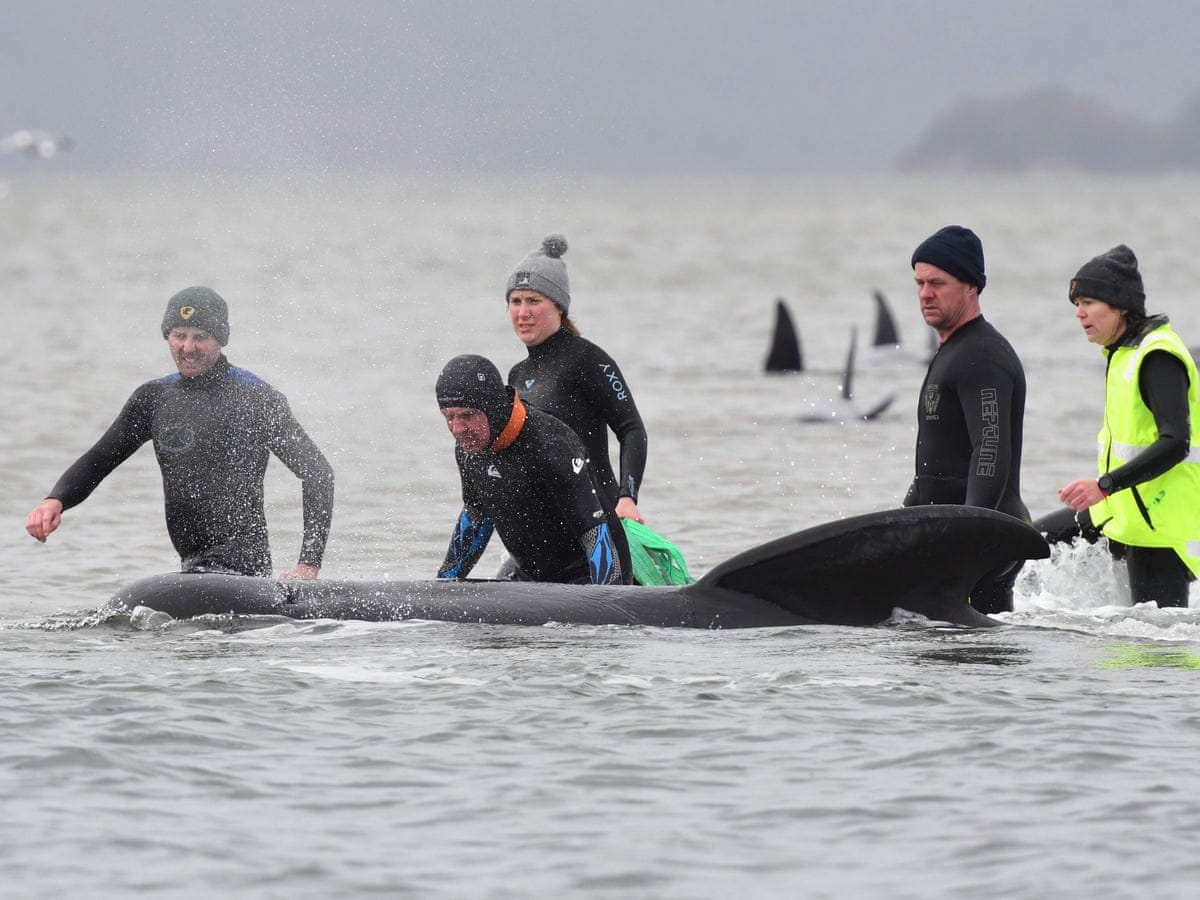
Worst stranding in recorded history
Researchers know from fossil records that mass stranding events have occurred in the past.
In 1935, 294 pilot whales were found stranded in Tasmania’s north-west.
But no other recorded stranding event comes close to this, with 470 whales so far found stranded and a possibility that more will be discovered.
How did so many whales end up stranded?
First off - no, it doesn’t look like this one has much to do with climate change.
“There’s nothing to indicate that this [stranding] is human caused. This is a natural event and we know strandings have occurred before and we know that from the fossil record,” said Dr Kris Carlyon, a marine conservation program wildlife biologist.
So what caused it?
Whales, and sometimes dolphins, are known to strand themselves ashore - but no one knows for sure why it happens.
One theory suggests whales’ echolocation - their way of knowing their surroundings - doesn’t work too well in some bodies of water, causing them to head too close to the shore without realising.
Other theories suggest changes in water temperatures have something to do with it, or geomagnetic disturbances, or even the use of sonar by ships.
Can the whales be saved?
Some, but not all, will be saved. Roughly 60 rescuers are working to save the whales - on Tuesday, 25 whales were able to be pulled back into the water by boats.
Between 150 and 250 of whales discovered are already dead.
Rescuers say there’s a good chance more whales will be saved on Wednesday.



